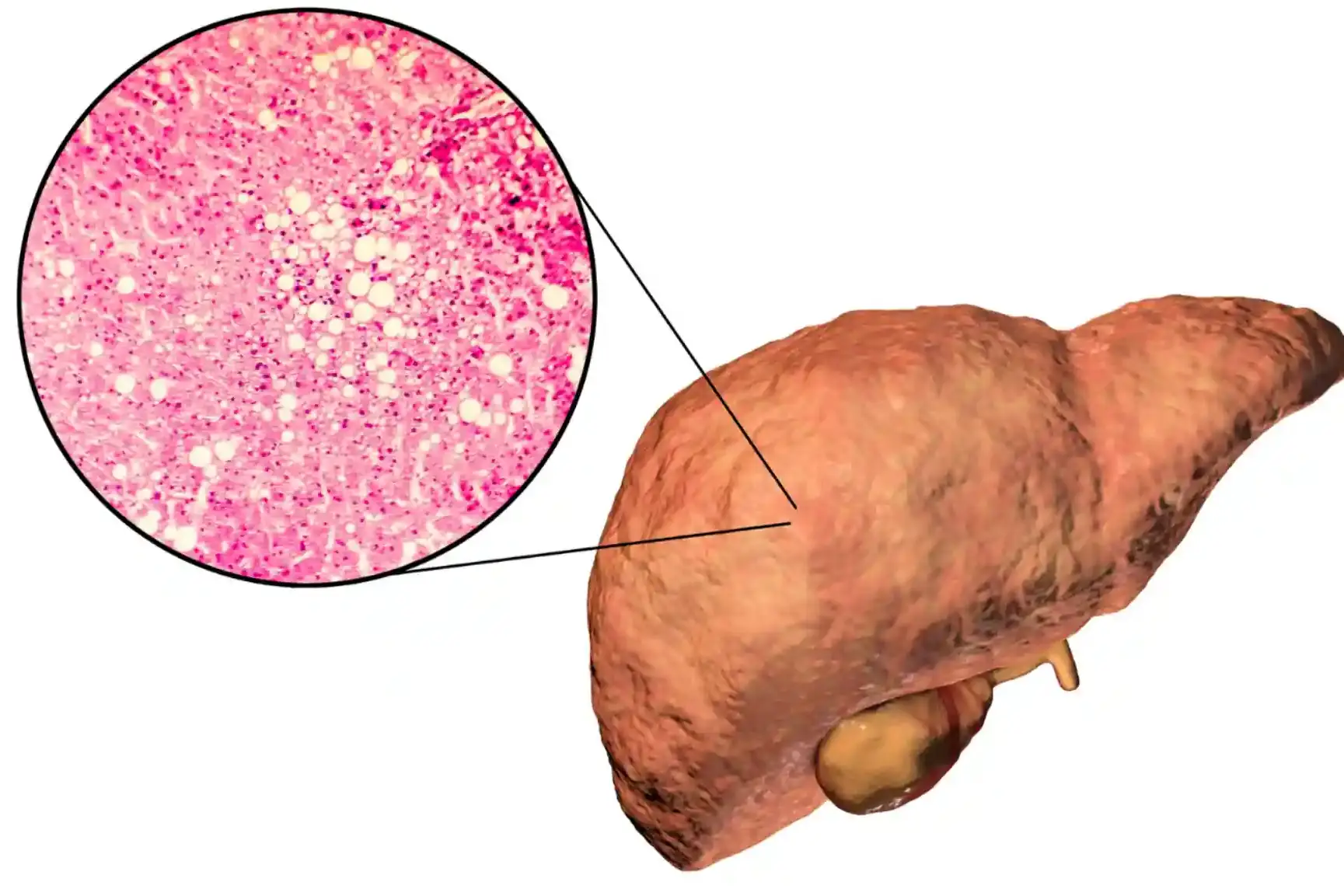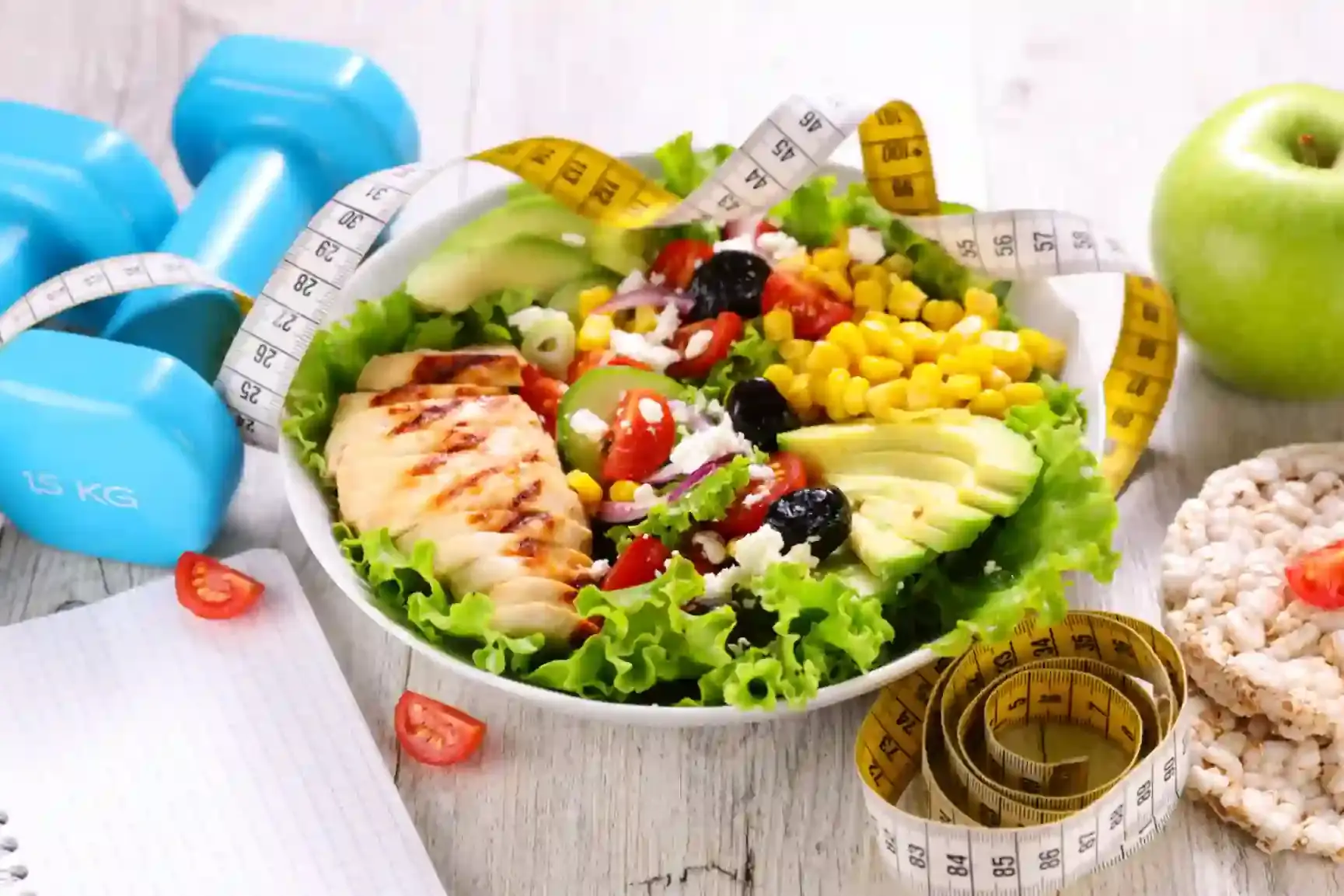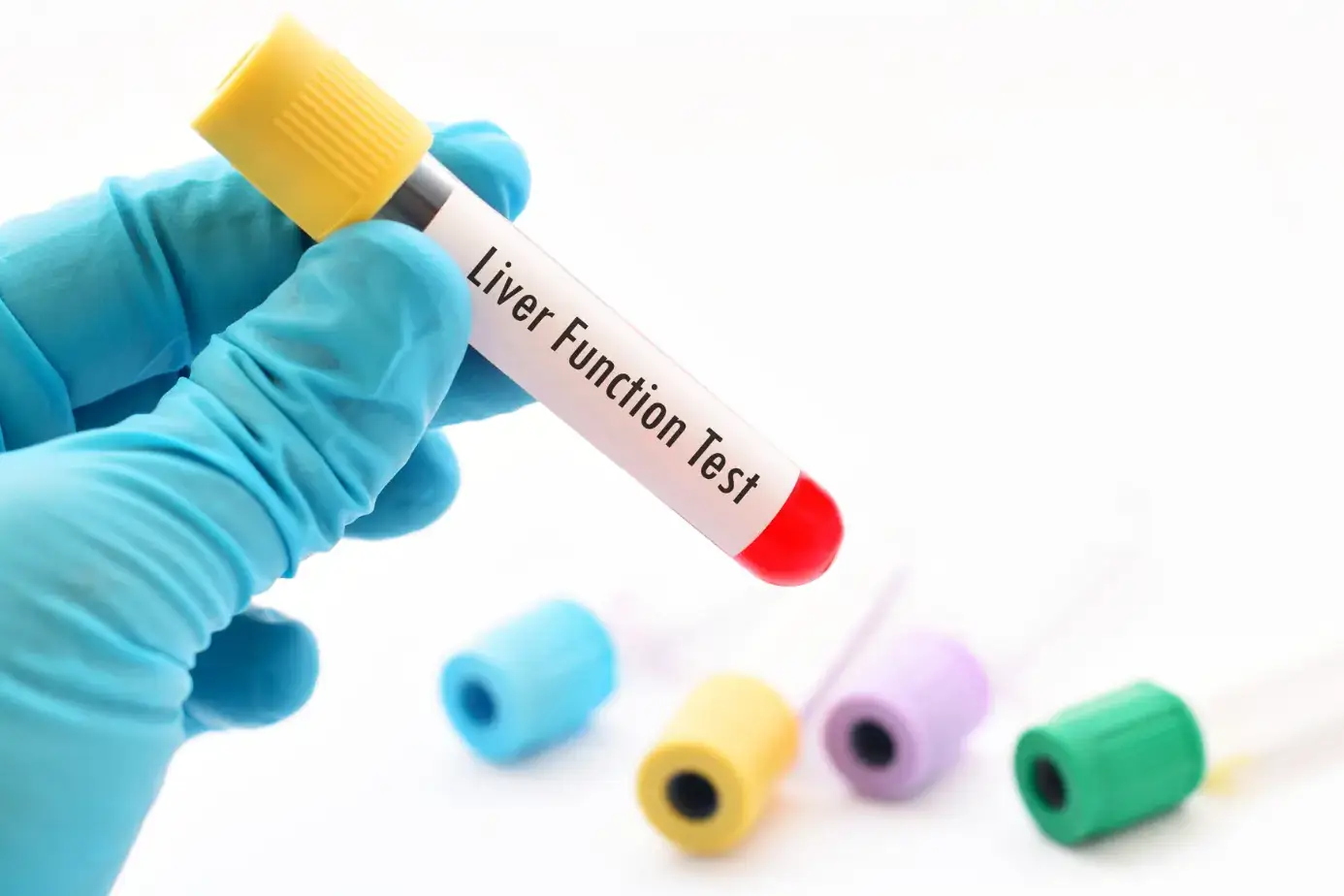Food poisoning is an irritation or infection in your digestive system. You get it from something you eat or drink. It might come from foods or drinks with viruses, parasites, or bacteria. Occasionally, it’s caused by harmful chemicals. The most common symptoms of food poisoning are nausea, vomiting, diarrhea, and stomach cramps. These symptoms often show up within 2-6 hours after eating bad food.
Table of Contents
ToggleMost people start to feel better within 12-48 hours. But, it can last longer or be more serious for some. This includes older adults, infants, children, pregnant people, and those with weak immune systems. Knowing the causes, symptoms, and effective treatments for food poisoning is key. It can help you get better faster and avoid complications.
Understanding Food Poisoning
Food poisoning happens when we eat or drink things that make us sick. This can be from food with bad bacteria, viruses, parasites, or harmful chemicals. Some common bad germs are Campylobacter, E. coli, and Salmonella. Others are Norovirus and Hepatitis A. These can all make us feel really sick.
What is Food Poisoning?
Food poisoning is when you get sick from eating or drinking something bad. It makes your stomach angry and can cause you to throw up or have diarrhea. This happens because of bacteria, viruses, parasites, or toxins in the food you ate.
Causes of Food Poisoning
Food poisoning comes from eating food or drinks that are not clean. The main culprits are bad bacteria, viruses, and parasites. These can get in your body and cause problems. Always be careful with what you eat, especially if the food looks or tastes weird.
Common Symptoms of Food Poisoning
After eating bad food, you might feel sick within a few hours. Nausea, vomiting, and stomach cramps are common. Most people get better on their own after a day or two. But if you’re very young, very old, or sick already, it could be more serious.
Hydration: The Key to Recovery
It’s vital to drink enough water when dealing with food poisoning. Vomiting and diarrhea take a lot of fluids and electrolytes from your body. So, it’s very important to stay hydrated during this time.
Signs of Dehydration
Fatigue, dizziness, a dry mouth, and an irregular heartbeat are signs of dehydration. These signs show your body needs more fluids and electrolytes. It’s crucial to try and rehydrate as much as possible.
Oral Rehydration Solutions
Oral rehydration solutions like Pedialyte and CeraLyte are great for getting back necessary fluids and electrolytes. They work better than just drinking water. They are highly suggested for some adults, especially when dealing with severe cases of dehydration.
Intravenous Fluid Therapy
If dehydration is very severe, you might need IV fluid therapy. This treatment is to help balance fluid and electrolytes fast. It’s used in cases where vomiting and diarrhea have been causing a lot of issues.
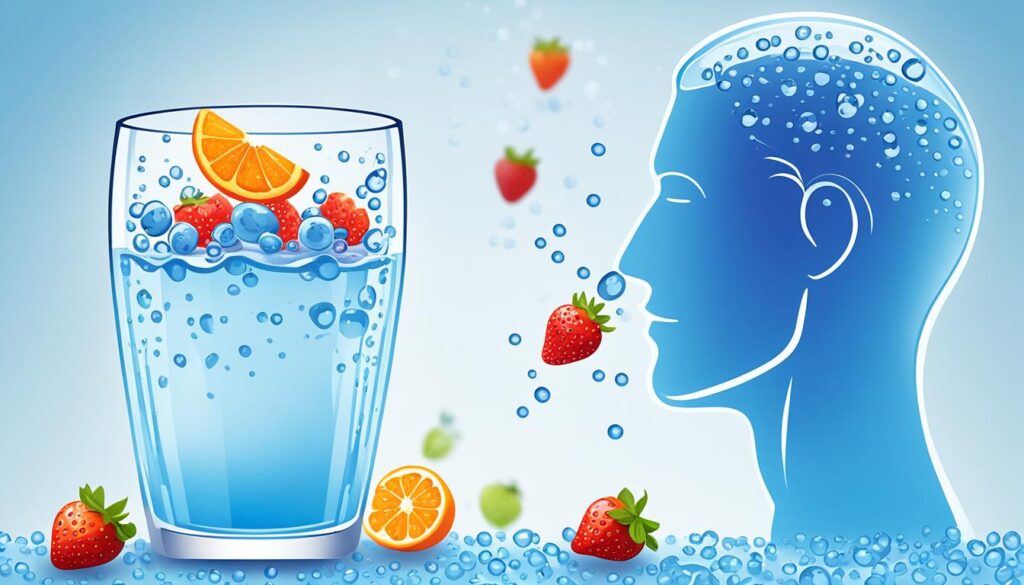
Rest and Bland Diet
Taking it easy and eating foods that are simple to digest are vital when dealing with food poisoning. The BRAT diet is a good choice. It includes bananas, rice, applesauce, and toast. These foods can make your stool more solid and help you get back the nutrients you’ve lost. You might also find you can eat dry cereal, saltine crackers, oatmeal, and potatoes.
The BRAT Diet
The BRAT diet is helpful because it’s gentle and easy on your stomach. It consists of bananas, rice, applesauce, and toast. These four foods are known for being kind to your digestive system. They can also replace the nutrients you’ve lost and make your stool firmer.
Other Gentle Foods
There are more foods besides the BRAT diet that can be good for recovery. You might find you can eat dry cereal, saltine crackers, oatmeal, and potatoes. These options are bland and simple to digest. They offer some nutrition without upsetting your stomach further.
Foods to Avoid
Certain foods should be off-limits when you have food poisoning. Avoid dairy, fried, spicy, and sugary foods, plus caffeine and alcohol. Rest and slowly adding mild, bland items back into your diet will help you feel better. Ensure you give your body the time it needs to heal.
Medications for Symptom Relief
Over-the-counter medications can help with food poisoning symptoms. Products like Pepto-Bismol and Kaopectate have bismuth subsalicylate. It reduces nausea and diarrhea.
Loperamide found in Imodium A-D slows digestion and makes stools firmer. Be careful with these medicines, especially for children. Always ask a doctor first.
These remedies can work for many food poisoning cases. But, if symptoms are severe or last a long time, see a doctor. You might need stronger medicines.
Bismuth Subsalicylate (Pepto-Bismol, Kaopectate)
Bismuth subsalicylate in Pepto-Bismol and Kaopectate decreases nausea and diarrhea. They are a good choice for easing food poisoning symptoms.
Loperamide (Imodium A-D)
Loperamide from Imodium A-D is good for diarrhea. It slows digestion and firms up stools. But, always be careful, especially with kids, and talk to your doctor first.

Probiotics: Restoring Gut Balance
Food poisoning can cause a bad balance of bacteria in the gut. Taking probiotics can help. These are good bacteria that can make your gut healthier. They might also make you less likely to get sick again by boosting your immune system and fighting off bad germs. Eating foods high in probiotics, like yogurt, is good during and after you’re sick.
Probiotics are important for treatments for food poisoning and staying healthy. They help by bringing back the good bacteria in your gut. This is key for healing and keeping your gut strong. People who have had food poisoning need this extra help to protect against getting sick again.
Eating foods or taking supplements with probiotics is easy and works well after food poisoning. This simple step can help your body recover and avoid more problems later on. It’s a good way to take care of your digestive system.
| Intervention | Description |
|---|---|
| Antibiotics | Prescribed for severe cases of food poisoning caused by bacteria. |
| Probiotics | Recommended by healthcare providers to replace healthy gut bacteria. |
| Nonprescription drugs | Loperamide (Imodium A-D) for adults with non-bloody diarrhea, and bismuth subsalicylate (Pepto-Bismol) for upset stomach. |
| Fluid replacement | Necessary to prevent dehydration, especially after vomiting or diarrhea. |
| Treatment effectiveness | Varies depending on the severity of symptoms and the cause of food poisoning. |
| Recommendations for dietary changes | Gradually reintroduce bland, low-fat foods to aid recovery from food poisoning. |
| Diagnostic tests | Stool sample tests and blood tests used to identify specific pathogens causing food poisoning. |
| Symptom improvement | Typically occurs within 48 hours without specific treatment for most individuals. |
treatments for food poisoning
Over-the-Counter Remedies
Along with drinking plenty of fluids and resting, you can use over-the-counter treatments for food poisoning. Items like Pepto-Bismol and Kaopectate help with nausea and diarrhea. Imodium A-D, which has loperamide, slows down your system to make your stool firmer.
Take care when using these without a doctor’s advice, especially for kids. Always talk to a healthcare provider before trying any.
Prescription Medications
If you have a severe case of food poisoning, or if you are at risk for more problems, you might need prescription drugs. Doctors may give you antibiotics for bacteria or antiparasitic drugs for parasites. They may also suggest probiotics to bring back good gut bacteria.
When to Seek Medical Attention
If you don’t feel better after a few days, have a high fever, find blood in your stool, or see signs of serious dehydration, get medical help right away. Quick treatment can stop complications and ensure you get the care you need. Over-the-counter drugs are good for mild symptoms, but you might require stronger medicines or a doctor visit for severe symptoms.
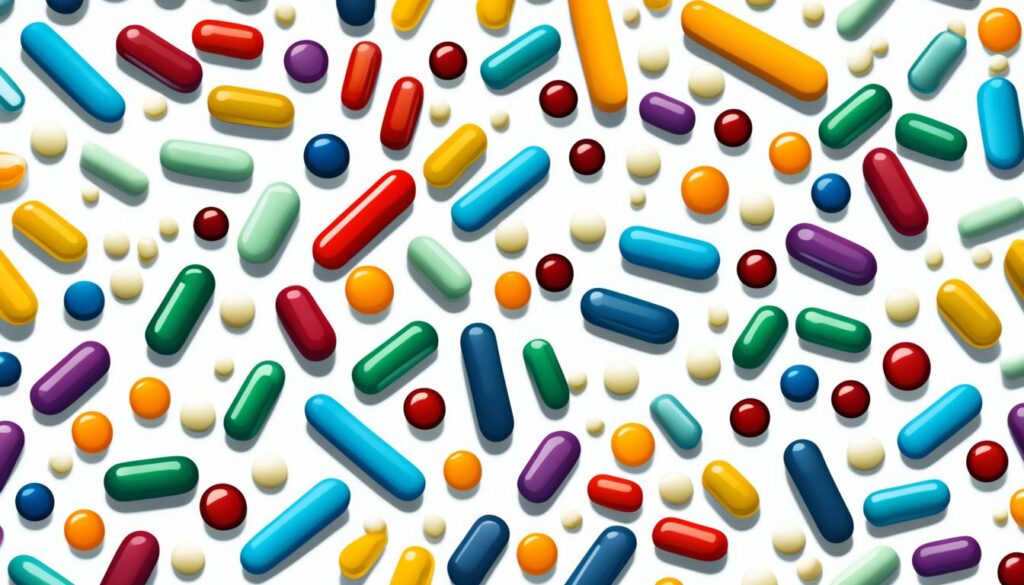
Prevention Strategies
It’s better to stop food poisoning before it starts. Make sure to follow good food safety practices. This will cut down on getting sick from food.
Food Safety Practices
Always wash your hands before cooking or eating. Foods should be fully cooked to safe temperatures. Keep cold foods cold and hot foods hot. Also, wash fruits and veggies well. And, don’t let raw food touch ready-to-eat food.
High-Risk Groups
Some people are more likely to get serious food poisoning. This group includes the old, the young, pregnant women, and those with weak immune systems. They need to be extra careful with food. This will help them stay away from contaminated foods.
Avoiding Contaminated Foods
To stay safe, avoid foods that might be bad. Skip foods like raw milk, rare meat, and unwashed fruits. Be careful when eating out, especially in places not strict on food safety. This simple act could keep you from getting food poisoning.
Diagnosing Food Poisoning
Diagnosing food poisoning starts with looking at what was eaten lately. Doctors check if anyone else got sick from the same food. They also look at places visited and any new medicines taken. They ask about symptoms like diarrhea, throwing up, stomach pain, and fever.
Physical Examination
Doctors then do a physical exam. They ask about recent meals and who ate them. They check if someone has been on a trip or started new meds. By putting this together with the exam, they can figure out what caused the food poisoning.
Stool and Blood Tests
Doctors might also test the stool and blood. These tests can show if bacteria, viruses, or toxins are to blame. Blood tests also show how the body is fighting off the sickness.
These tests are key to choosing the right treatment. Antibiotics might be needed for a bad case of bacterial food poisoning. For parasites, special drugs are used.
Identifying the Source
During a big outbreak, health officials join in. They look at many cases to find the source of the sickness. This can pinpoint the food or drink that spread the illness. Then, steps can be taken to prevent it from happening again.
Finding the exact cause is critical for treating and stopping food poisoning. A team effort by health experts ensures the best care for the patient. It involves detailed exams, tests, and sometimes larger investigations. All aimed at getting to the root of the problem.
Severe Cases and Complications
Most food poisoning cases get better in a few days, but some are more severe. They can lead to serious problems. This includes severe dehydration and an imbalance in electrolytes. These issues can be very dangerous, especially for kids and older people.
When pregnant, food poisoning poses risks like miscarriage and infections in the baby. Those with chronic illnesses or weak immune systems face a higher risk of severe food poisoning effects.
Dehydration and Electrolyte Imbalance
Food poisoning causes severe diarrhea and vomiting. This leads to fast fluid and electrolyte loss. It can mean dehydration and an imbalance in electrolytes. This is very risky for adults and kids with severe symptoms.
It’s important to drink oral rehydration solutions like Pedialyte, Naturalyte, Infalyte, and CeraLyte. They help replace lost fluids and electrolytes. They also help prevent problems like kidney failure.
Pregnancy Complications
Food poisoning is very serious for pregnant women. It can lead to miscarriage, stillbirth, and infections in the baby. Pregnant women are at a higher risk of severe symptoms because of their weaker immune systems.
Getting prompt medical help is key to keeping both mother and baby safe.
Chronic Illnesses and Weakened Immunity
People with chronic illnesses or weak immune systems face a higher risk of severe complications. This includes those with HIV/AIDS, cancer, or who had organ transplants. They might need more medical care, including hospitalization.
Food Poisoning in Children and Infants
Children and infants are at high risk for food poisoning. Their immune systems are still growing. This makes them more prone to dehydration. It’s important to keep them hydrated with solutions like Pedialyte. These help add back lost nutrients.
Rehydration Solutions for Children
For kids with food poisoning, oral rehydration drinks are key. They replace lost fluids and electrolytes. For babies under 6 months, options are Pedialyte, breast milk, or formula. Over 6 months, Pedialyte, popsicles, or weak juice are good.
When to Seek Medical Help for Children
Watch kids for serious symptoms like high fever or bloody diarrhea. If they become very tired or stop peeing, get medical help. Fast treatment is crucial to avoid illness from worsening.
Kids under 5 face a greater food poisoning risk. Symptoms can appear within 2 days after eating bad food. Dehydration in kids happens fast and might need hospital care. Though most kids get better without treatment, severe cases might need antibiotics.
Avoid giving kids anti-diarrhea drugs as they could make things worse. Most kids get well in 1 to 5 days with plenty of rest and fluids. If symptoms don’t improve, see a doctor.
Dehydration shows as confusion, heavy thirst, sunken eyes, fast heart rate, and tiredness. If the child’s immune system is weak, they might get medicine. It’s vital to ensure they drink plenty of water and other fluids.
Conclusion
Food poisoning is serious but you can recover fast by knowing its causes, symptoms, and how to treat it. Drinking lots of water, eating simple foods, and using certain drugs can help at first. Yet, some may need stronger medicines or a doctor’s help.
Keeping food safety in mind and seeing a doctor quickly lowers your food poisoning risk. This way, you can deal with this common yet serious sickness.
Millions get food poisoning yearly, but you can help yourself and your family by being careful and informed. Always keep an eye out, drink plenty of water, and seek a doctor if you’re not getting better. With the right steps, you’ll soon be well again.
FAQ
What is food poisoning?
Food poisoning happens when harmful things in food or drinks make you sick. These can be viruses, parasites, or bacteria. Sometimes, bad chemicals are the cause.
What are the most common symptoms of food poisoning?
Symptoms include feeling like you want to throw up, throwing up, diarrhea, and stomach pain. They start a few hours after eating bad food. Most people feel better within 1-2 days.
What causes food poisoning?
Bacteria, viruses, and parasites are the usual culprits. For example, Campylobacter, E. coli, and Salmonella are common bacterial causes. Norovirus and Hepatitis A are viral, and Giardia is a parasitic cause.
Why is hydration important for treating food poisoning?
It’s key to drink plenty of fluids to beat food poisoning. Vomiting and diarrhea can make you lose a lot of water and salts. Signs that you might be dehydrated include feeling very tired and dizzy. A rehydration drink like Pedialyte is better than water alone.
What is the BRAT diet, and how can it help with food poisoning?
The BRAT diet suggests eating bananas, rice, applesauce, and toast to recover. It helps make your stomach feel better. These foods are gentle and give back lost nutrients.
What over-the-counter medications can help with food poisoning symptoms?
Bismuth subsalicylate, in Pepto-Bismol and Kaopectate, reduces nausea and diarrhea. Loperamide, in Imodium A-D, slows down digestion and hardens stools.
How can probiotics help with food poisoning recovery?
Probiotics are good bacteria that can balance your gut. They help fight off bad bugs. This may prevent getting sick again.
When should you seek medical attention for food poisoning?
See a doctor if you’re not better in a few days, have a high fever, see blood in your stool, or feel very dehydrated. Quick care can avoid serious problems and get you the right treatment.
What are some high-risk groups for severe food poisoning?
Older adults, babies, kids, pregnant people, and those with weak immune systems need to be extra careful. They are more likely to get very sick from food poisoning.
How is food poisoning typically diagnosed?
Doctors ask about symptoms and what you’ve eaten recently. They might test your stool or blood to find out the cause.
What are some of the most serious complications of food poisoning?
Severe dehydration and an imbalance of salts can be deadly, especially for the very young and the elderly. Pregnant women face risks like miscarriage. It can also lead to infections in the baby or early labor.
About The Author

Medically reviewed by Dr. Nivedita Pandey, MD, DM (Gastroenterology)
Dr. Nivedita Pandey is a U.S.-trained gastroenterologist and hepatologist with extensive experience in diagnosing and treating liver diseases and gastrointestinal disorders. She specializes in liver enzyme abnormalities, fatty liver disease, hepatitis, cirrhosis, and digestive health.
All content is reviewed for medical accuracy and aligned with current clinical guidelines.



